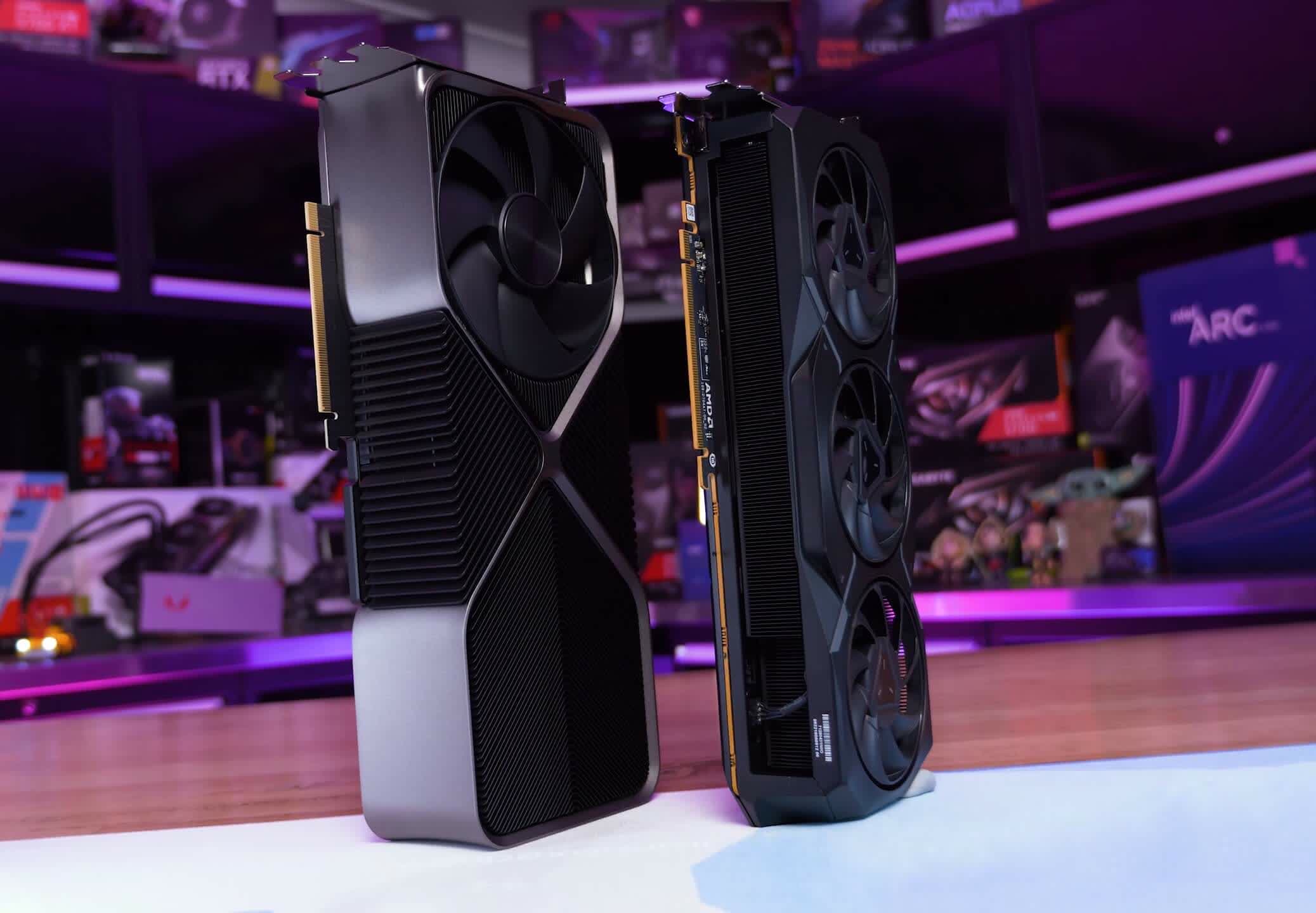Bottom line: The PC market has definitely seen better days, but one thing is for sure -- the surge in demand caused by the transition to hybrid work and study is over, and consumers aren't rushing to upgrade their systems anymore. This saw CPU and GPU shipments fall significantly in 2022, but it's unclear if that will lead to any significant price reductions this year.

The pandemic-fueled spending on new PCs and upgrades for aging systems appears to be over as CPU shipments were down 35.3 percent in Q4 2022 over the same period of 2021 and 17.4 percent lower than the preceding quarter. This shouldn't come as a huge surprise as earlier this month we learned that motherboard makers saw their shipments plummet in 2022 with no expectation for a significant recovery until 2024.

According to Jon Peddie Research, there has been a similar story developing for GPUs where sales dropped 38 percent year-over-year in the last quarter of 2022 and 15.4 percent from the three months prior. Desktop graphics card shipments saw a 7.8 percent increase in shipments from the last quarter, while notebook GPU shipments saw a 43 percent drop over the same period -- the biggest observed in over a decade.
There are several important observations, the most important of which is that the overall GPU market cratered last year. Inflation and perceived high demand kept prices high even for last-generation hardware, and companies like Nvidia and AMD decided to launch new models relatively late in the year with the same or lower performance per dollar. As a result, AIB partners shipped 7.4 million units to retailers in Q4 2022 compared to almost 13.2 million units in Q4 2021.

Intel remains the largest GPU supplier in the world thanks to the integrated graphics solutions found in many of its processors, but Team Blue has yet to make a dent in the discrete GPU market. The company is slowly improving the appeal and availability of its Arc Alchemist GPUs, so it will be a while before we have a clear idea of how well they're selling. Meanwhile, Intel is busy working on Battlemage, a new family of GPUs that's designed to compete with Nvidia and AMD's mainstream models in terms of performance per dollar.
Nvidia's share of the GPU market is now 17 percent, while AMD sits at a more modest 12 percent. The two companies made similar gaming revenue last quarter, but the latter will face fierce competition from Intel, which is looking to flood the market with value-oriented discrete GPUs in the coming months. As for Nvidia, its eyes are set on the AI training market where demand for specialized accelerator hardware is on an upswing.
Jon Peddie Research analysts expect overall GPU sales to remain flat over the next few years while desktop models could grow to make up 32 percent of total shipments by 2026.
https://www.techspot.com/news/97754-cpu-gpu-markets-cratered-towards-end-2022.html
